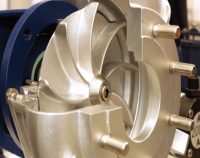Best Practices for Energy-Efficient Data Center Design: 4 PDH
$24.00
SPECIFIC KNOWLEDGE OR SKILL OBTAINED
This course teaches the following specific knowledge and skills:
- Identify energy-saving IT equipment and configurations
- Explain air management for optimal cooling efficiency
- Apply ASHRAE thermal guidelines to design decisions
- Evaluate cooling systems and economizer usage
- Analyze energy efficiency metrics like PUE and ERE
- Design power distribution systems for minimal energy loss
CERTIFICATE OF COMPLETION
You will be able to immediately print a certificate of completion after passing a 20 question multiple-choice quiz. The quiz can be retaken unlimited times until a passing grade of 70% or better is earned. This course satisfies four (4) hours of professional development (PDH).
Related Courses
Electrical Reliability of North American Electric Power Systems: 5 PDH
$30.00 Add to cartIn this course the student will understand the North American interconnected electric grid and will become familiar with the requirements on the users, owners and operators of bulk power system to ensure reliable grid operations.Instructor: Juan Pesante, PESPECIFIC KNOWLEDGE OR SKILL OBTAINED
This course teaches the following specific knowledge and skills:
- Discuss the US Electric Grid system and its history
- Understand the functions and concepts of electric power system operations
- Discuss FERC and the Energy Policy Act of 2005
- Discuss the electric reliability organization
- Explain reliability standards and standard’s development
- Explain reliability compliance, enforcement, and assessments
CERTIFICATE OF COMPLETION
You will be able to immediately print a certificate of completion after passing a 20 question multiple-choice quiz. The quiz can be retaken unlimited times until a passing grade of 70% or better is earned. This course satisfies five professional development hours (PDH) of continuing education.
Preview CourseClick “Preview Course” to View Prior to PurchaseClick “Add to Cart” to Purchase and Access QuizImproving Pumping System Performance: 4 PDH
$24.00 Add to cartThis course provides a thorough overview of pumping systems and their components and practical guidelines to enhance performance and increase efficiency. Instructor: Seth Grablow, PESPECIFIC KNOWLEDGE OR SKILL OBTAINED
This course teaches the following specific knowledge and skills:
- Understand pumping systems and pumping applications
- Discuss pumping system components and principles
- Explain pumping assessments and common system problems
- Discuss performance enhancements at the system level
- Discuss performance enhancements at the component level
- Understand the economics of improving pumping systems
CERTIFICATE OF COMPLETION
You will be able to immediately print a certificate of completion after passing a twenty (20) question multiple-choice quiz. The quiz can be retaken unlimited times until a passing grade of 70% or better is earned. This course satisfies four (4) professional development hours (PDH) of continuing education.
Preview CourseClick “Preview Course” to View Prior to PurchaseClick “Add to Cart” to Purchase and Access Quiz




